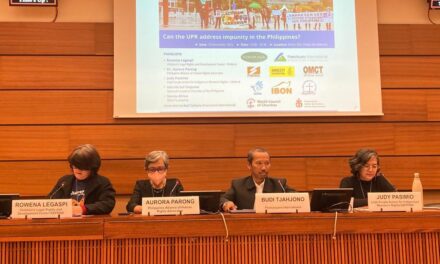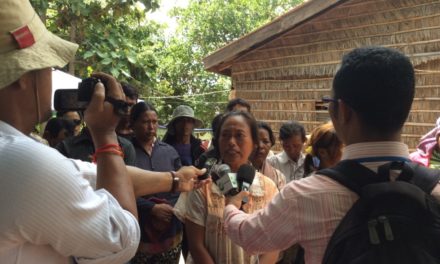PRESS RELEASE:30 August 2007, New Delhi
DEMAND FOR WHITE
PAPER ON WTO GAINS AND LOSSES
A national consultation on
‘What the WTO Doha Development Round means for India' held at the
national capital on 29 August 2007 was attended by government
officials, academicians, policy analysts, farmers groups and
representatives of civil society organisations from across the
country. With negotiations on agriculture and NAMA set to begin by
September 2007 at the WTO headquarters in Geneva participants at the
meeting voiced serious concerns on the implications of the current
proposals on Indian Agriculture. The consultation was a joint
initiative of Focus on the Global South -Mumbai, Food, Trade and
Nutrition Coalition-Asia and Forum for Biotechnology and Food
Security-New Delhi
PRESS RELEASE:
While delivering the
Special Lecture on Food Sovereignty Chairman of the National
Commission on Agriculture, Food and Nutrition Security Prof.
MS Swaminathan emphasised that unless
steps are taken to safeguard the nation's food sovereignty, there
would be massive unrest. ‘Without
food sovereignty there would be no political sovereignty of the
nation. If accession to the WTO increases livelihood insecurity
among farmers, we ought to bring back quantitative restrictions',
he said.
On the current drive
to diversify towards production of cash crops, Swaminathan added,
‘Agriculture trade policy ought to be
based on the maxim – import less and live rather than export and
perish'. On the issue of wheat
imports, he cited the case of Canada which permits only the
state-owned Canadian Wheat Board to procure from farmers.
Former Union
Minister M P Veerendra Kumar said that
big corporations' entry into agriculture was resulting in the loss
of livelihood for farmers. He added that ‘Traditional
crop varieties are being replaced and farmers are forced to rely on
seed companies'.
Chairman of the
Commision for Agriculture Cost and Prices Dr. T Haq
in his inaugural address stated that ‘the
paradigm shift in Agriculture policy implies that self- sufficiency
is no longer our goal. We should also recognise that this move to
intergrate Indian agriculture with the world markets means that there
is no role for small and marginal farmers in this country'.
Commerce
Secretary Mr. G K Pillai spoke about
the state of play in the negotiations and India's stand in the run
up to the September talks in Geneva. ‘The
general consensus is that the Agriculture draft paper forms a good
basis to form a deal that will be acceptable to India. On the other
hand the NAMA paper has been rejected by 112 countries and is as good
as dead', he emphasised.
Former Ambassador
to the GATT, BL Das was sceptical about
India's prospects to get a good deal out of the Doha Round. ‘Given
India's proposals on Agriculture and NAMA, even with the best of
results, it is not in our national interest', he
warned.
‘With bulk of
the subsidies parked in the Green Box, how can the Ministry of
Commerce not demand its disciplining? Reducing trade distorting
subsidies by a few billion dollars is not going to save our farmers
from dumping of subsidized agri-commodities by developed countries'
said food and trade policy analyst Devinder
Sharma.
‘USA's claim
that it is reducing subsidies is incorrect'
said Dr. Sachin Chaturvedi of Research
and Information System for Developing Countries (RIS).
While presenting an analysis of the Farm Bill 2007 Chaturvedi pointed
out that the US has increased its allocation for subsidies which
contradicts its stand at the negotiations.
Experts felt that
Non Tariff Barriers (NTBs) and Intellectual Property Rights (IPR)
have been put on the backburner.‘IPRs
have serious implications on our food sovereignty',
said Dr. Suman Sahai
of the New Delhi based think tank Gene Campaign. Highlighting the
growing problem of rejection of exports by developed countries Vijay
Sardana of Centre for International Trade in Agriculture (CITA)
said, ‘China is using SPS measures
against the US to retaliate against export rejections.
Unfortunately, in our country, we have not yet formulated ways and
means of using non-tariff barriers to protect our markets'.
The meeting came up with a
set of concrete demands to the Government.
-
Reject the
present drafts on Agriculture and NAMA that will form the basis for
restart of WTO negotiations in September. -
A white paper
on gains and losses from WTO should be brought out immediately by
the Ministry of Commerce -
Quantitative
Restrictions (QRs) should be brought back to protect Indian
agriculture; -
Autonomous
liberalisation should be stopped -
Reopen
negotiations on Article 27(3) (b) of the Agreement on TRIPS.
For more information
please contact Bhaskar Goswami (+919811191335 –
[email protected]
or Afsar Jafri (+919833070803 – [email protected])
{moscomment}









